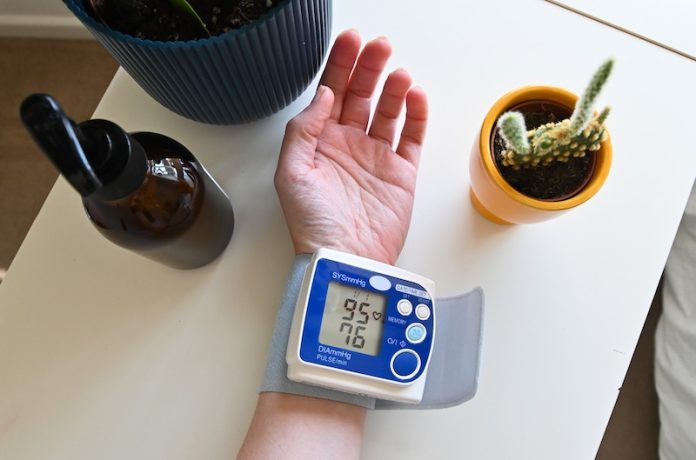
High blood pressure, or hypertension, is a problem for nearly half of all Americans. It’s a silent killer.
In 2021, close to 700,000 people died from it, says the US Centers for Disease Control and Prevention. It can also lead to strokes and heart failure.
Even though it’s easy to prevent or control if caught early—eat healthier, exercise more, drink less—it’s hard to treat. Doctors have many medicines to choose from, but picking the right one is tricky.
For example, beta-blockers slow down your heart, but can cause asthma. ACE inhibitors relax your blood vessels, but might give you a bad cough.
New AI Model: A Personalized Approach to High Blood Pressure Treatment
But, there’s good news! A new tool using artificial intelligence (AI) may help doctors match people with high blood pressure to the best medicine for them.
This AI tool uses information like a person’s age, past health, and test results to suggest the best treatment. It’s a real-time tool that can help doctors make quick decisions.
According to a study in BMC Medical Informatics and Decision Making, this AI model could help lower systolic blood pressure.
That’s the pressure when your heart beats, not when it’s resting. And it’s better than the current standard of care.
This AI model also helps doctors trust AI more, because it’s transparent. “This AI model isn’t just predicting what will happen,” says Ioannis Paschalidis, a professor at Boston University. “It’s suggesting the best medicine for each patient.”
How Does the AI Model Work?
Right now, doctors choose a medicine based on the patient’s history, treatment goals, and the pros and cons of each medicine. But with so many choices, sometimes it’s a toss-up.
This AI model is different. It creates a personalized prescription based on the patient’s details. It gives doctors a list of suggested medicines and how likely each one is to work.
The idea is to find the best treatment that controls systolic blood pressure based on how well it worked in similar patients.
“We want to make high blood pressure treatment more personal,” Paschalidis says. “We use AI to find the best medicine for each person.”
Building and Testing the AI Model
To create this model, the researchers used information from 42,752 patients at Boston Medical Center (BMC) from 2012 to 2020.
The patients were grouped based on things like their age, past blood pressure records, and health history.
During the study, the researchers compared the AI model to the current way of doing things and three other models. They found that the AI model was the best.
It reduced systolic blood pressure by over 70% more than the standard care, and it worked 7% better than the next best model. They checked their work by manually reviewing 350 cases.
The AI model also showed the benefits of de-prescribing, or reducing or stopping prescriptions for some patients on many medicines.
The Benefits and Challenges of AI in Healthcare
AI has a lot of potential to help healthcare. It can handle large amounts of data and find patterns that could help doctors make better decisions.
But it has been slow to catch on because it’s hard to understand and some people don’t trust it.
Sometimes, AI in healthcare is held back by incomplete or wrong data, or not enough patient history.
In this study, the researchers made sure the data was clear and that doctors could understand how the AI model works and why it made specific suggestions.
Nicholas J. Cordella, an assistant professor at Boston University, says this model could help tailor care for people who are often overlooked.
“Personalized medicine and models like this are a chance to better serve populations that aren’t always included in national studies or considered when guidelines are made,” Cordella says.
In the end, this AI model could help doctors make better choices, improve patient care, and maybe even save lives. It’s an important first step towards making medicine more personal and effective.
If you care about blood pressure, please read studies that common painkillers can harm your blood pressure, and common high blood pressure drugs may actually raise blood pressure.
For more information about blood pressure control, please see recent studies about teas that may help reduce high blood pressure, and results showing this recommended high blood pressure drug may have dangerous side effects.
The study was published in BMC Medical Informatics and Decision Making.
Follow us on Twitter for more articles about this topic.
Copyright © 2023 Knowridge Science Report. All rights reserved.



